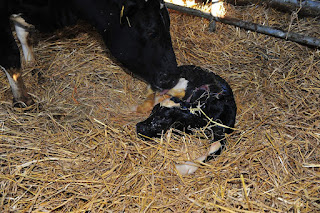Two Lives: Llyfrgell Genedlaethol & Ysbyty Bronglais
 |
| © Ian Capper/National Library of Wales CC BY SA 2.0 |
Afternoons spent in the calm, panelled reading room
with breath-taking views of Cardigan Bay
absorbing information, crafting essays,
glancing at the clock from time to time,
amazed to see a whole hour gone with Moltmann
while ten minutes spent with Kant
seem endless hours.
Time for a coffee break
and down the winding stairs
deep into the basement
passing book stacks and airtight rooms
stuffed with the artefacts of Welsh history,
down, down into the library's bowels
where coffee machines hiss and tea cups rattle
throwing out a welcome contrast
to the studious silence above;
greeted now by earnest young men
in pullovers and wild-looking
young women in scarves
bemoaning the cost of thesis-binding.
Strange to be accepted here,
a fully fledged researcher
chiselling out hunks of obscure knowledge
while all the time,
in my bag, lurk stethoscope and uniform
the trappings of a different life, nocturnal,
spent in brightly lit, windowless wards and bays,
each peopled with recumbent forms,
some bloody, others pale and drawn,
nursing injured limbs
or a crying child;
here, urgency is paramount,
the need to do, react, respond, record.
No time to reflect, no possibility of quiet
the whole night through,
noise and light pressing in around
quick decisions
making the most of limited information,
diagnose, treat, discharge,
investigate, inform, admit,
no frills, just basic care
that saves lives and eases pain.
And oddly, here, the supper break
is four stories up, past radiology
and ITU, a hurried combination of
canteen fry-up, tea and medical gossip,
views of the Library above silhouetted
against a moonlit sky as if watching,
observing safely at a distance,
dispassionate, mildly rebuking
of quite so much unreflective activity.
©Janet Henderson 20th February 2017
Llyfrgell Genedlaethol Cymru - the National Library of Wales - is situated in a dramatic location half way up the hill that is home to the University of Wales, Aberystwyth. It commands spectacular views of Cardigan Bay and also overlooks the local hospital - Ysbyty Bronglais. One summer during my theological training I was simultaneously working toward a research thesis in the National Library and as a staff nurse at the hospital below. The 'two lives' contrast in the poem mirrors a life-long struggle to find a satisfactory balance between reflection and action. Theology of course tends to teach that reflection is paramount. Work in A and E and ITU tends to require a certain amount of embodiment of well learned practices that can be engaged immediately and without too much reflection. In the so-called Pastoral Cycle beloved of pastoral theologians, I have always been very suspicious of any tendency to overemphasise reflection at the cost of action. Action requires the careful, in-the-moment attentiveness of the performer. Musicians and sports people understand this too. Every discipline requires both action and reflection but it is often a challenge to keep each in its proper place.
with breath-taking views of Cardigan Bay
absorbing information, crafting essays,
glancing at the clock from time to time,
amazed to see a whole hour gone with Moltmann
while ten minutes spent with Kant
seem endless hours.
Time for a coffee break
and down the winding stairs
deep into the basement
passing book stacks and airtight rooms
stuffed with the artefacts of Welsh history,
down, down into the library's bowels
where coffee machines hiss and tea cups rattle
throwing out a welcome contrast
to the studious silence above;
greeted now by earnest young men
in pullovers and wild-looking
young women in scarves
bemoaning the cost of thesis-binding.
Strange to be accepted here,
a fully fledged researcher
chiselling out hunks of obscure knowledge
while all the time,
in my bag, lurk stethoscope and uniform
the trappings of a different life, nocturnal,
spent in brightly lit, windowless wards and bays,
each peopled with recumbent forms,
some bloody, others pale and drawn,
nursing injured limbs
or a crying child;
here, urgency is paramount,
the need to do, react, respond, record.
No time to reflect, no possibility of quiet
the whole night through,
noise and light pressing in around
quick decisions
making the most of limited information,
diagnose, treat, discharge,
investigate, inform, admit,
no frills, just basic care
that saves lives and eases pain.
And oddly, here, the supper break
is four stories up, past radiology
and ITU, a hurried combination of
canteen fry-up, tea and medical gossip,
views of the Library above silhouetted
against a moonlit sky as if watching,
observing safely at a distance,
dispassionate, mildly rebuking
of quite so much unreflective activity.
©Janet Henderson 20th February 2017
Llyfrgell Genedlaethol Cymru - the National Library of Wales - is situated in a dramatic location half way up the hill that is home to the University of Wales, Aberystwyth. It commands spectacular views of Cardigan Bay and also overlooks the local hospital - Ysbyty Bronglais. One summer during my theological training I was simultaneously working toward a research thesis in the National Library and as a staff nurse at the hospital below. The 'two lives' contrast in the poem mirrors a life-long struggle to find a satisfactory balance between reflection and action. Theology of course tends to teach that reflection is paramount. Work in A and E and ITU tends to require a certain amount of embodiment of well learned practices that can be engaged immediately and without too much reflection. In the so-called Pastoral Cycle beloved of pastoral theologians, I have always been very suspicious of any tendency to overemphasise reflection at the cost of action. Action requires the careful, in-the-moment attentiveness of the performer. Musicians and sports people understand this too. Every discipline requires both action and reflection but it is often a challenge to keep each in its proper place.






Comments
Post a Comment